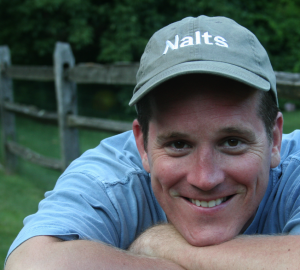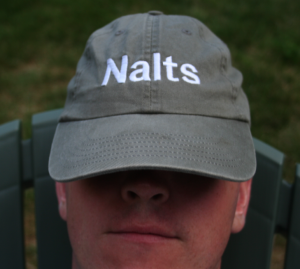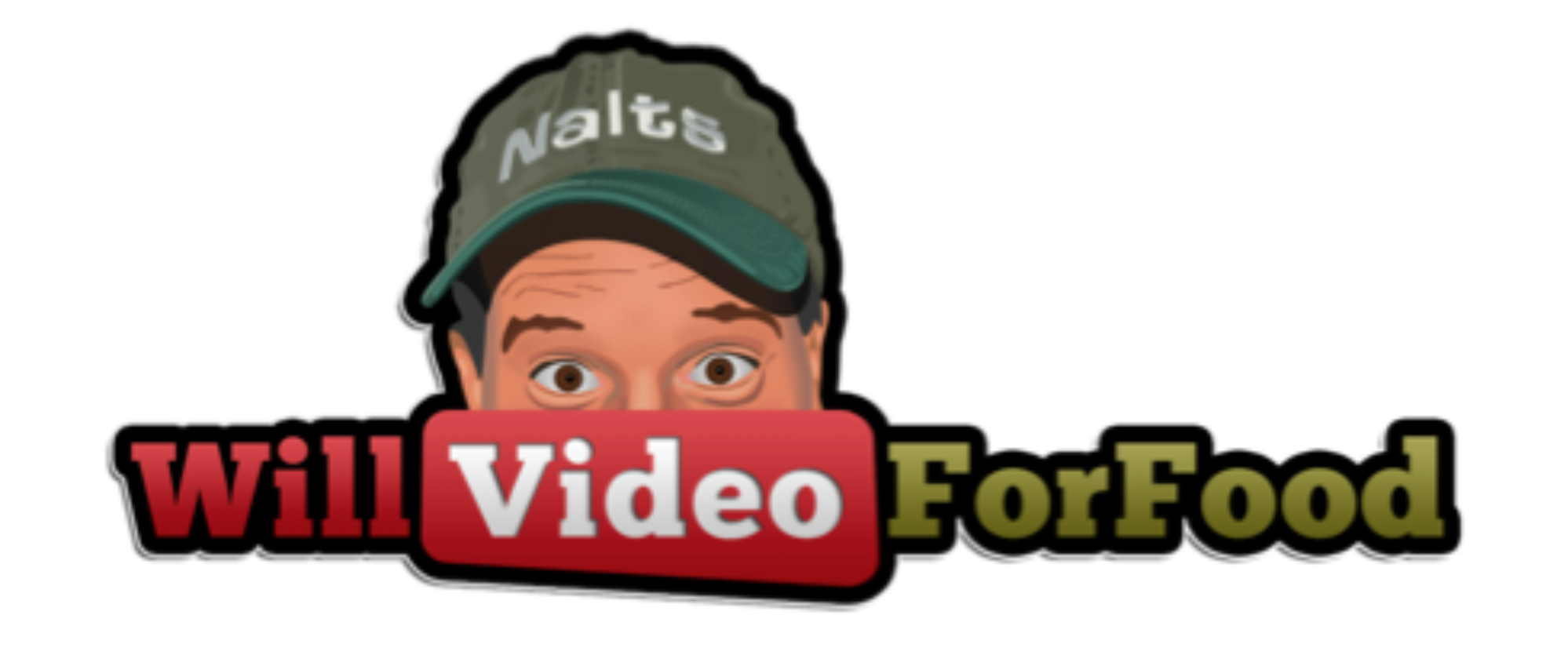How to Become a YouTube Partner: 2 Steps
 I receive a lot of e-mail about how to become a YouTube Partner (where individuals can share in the advertising revenue that appears aside their videos). Some of you WillVideoForFood tribe members (Reubnick) have expressed frustration about how some are “chosen” and others aren’t (I’ve also edited this post thanks to your comments). The photos of me are for two reasons: Color a long, gray post. And because I like seeing photos of me when there was once a sun.
I receive a lot of e-mail about how to become a YouTube Partner (where individuals can share in the advertising revenue that appears aside their videos). Some of you WillVideoForFood tribe members (Reubnick) have expressed frustration about how some are “chosen” and others aren’t (I’ve also edited this post thanks to your comments). The photos of me are for two reasons: Color a long, gray post. And because I like seeing photos of me when there was once a sun.
I’ve read many journalists and bloggers refer to the criteria as “vague.” Well of course it’s vague! Here’s why… YouTube’s stated criteria is as follows:
- You create original videos suitable for online streaming.
- You own the copyrights and distribution rights for all audio and video content that you upload — no exceptions.
- You regularly upload videos that are viewed by thousands of YouTube users.
George Strompolos, who leads the YouTube Partner Program, says “most users get turned down because they simply don’t have enough views or subscribers.” (Source: Alan Lastufa’s recently published “YouTube: An Insider’s Guide to Climbing the Charts”).
Now let’s put aside what YouTube “says” and what actually happens.
As evidenced by many of your comments below, Partnership approval almost feels random. When YouTube first began broadening the Partner program in 2007-2008, many smaller YouTube channels were approved while more popular ones weren’t. This could well be because channels had a higher frequency of copyright infringements (Alan also writes in his book that 9 out of 10 suspended channels resulted from copyright violations, even though many YouTubers claim they were suspended for other reasons).
 YouTube’s published criteria MUST be that the partner owns the copyrights — no exceptions. They can’t very well say, “your content should mostly be your own.” They’re legally obliged to demonstrate that they will not tolerate copyright violators. Zero tolerance HAS to be their stated criteria.
YouTube’s published criteria MUST be that the partner owns the copyrights — no exceptions. They can’t very well say, “your content should mostly be your own.” They’re legally obliged to demonstrate that they will not tolerate copyright violators. Zero tolerance HAS to be their stated criteria.
Of course, it’s nearly impossible to enforce that, and if it was enforced rigidly many popular YouTubers would be suspended from the Partners programs for having brief excerpts of songs, or even singing cover songs. Some of the very first YouTube partners had videos that strayed into the copyright-infringement “gray area.” And occasionally a YouTube Partner makes a judgment call about what constitutes an infringement — that can result in the video being removed and the Partner’s status revoked.
Naturally, YouTube doesn’t yet have the manpower or technology to review the entire video portfolio of someone requesting partner status. So YouTube staff must use common sense, and that can’t very well translate to a completely consistent policy.
It’s a “no brainer” for YouTube to reject an aspiring Partner that has been uploading other people’s music videos and full episodes of television shows. However among my 700 plus videos, there are a few where I used a copyrighted song or shot my camera at a television screen (especially early ones when I was less aware of the implications, and wasn’t monetizing my content anyway). I’ve been careful to not “monetize” those videos, and your first step as a partner is to manually turn on “monetization” on each old video.
The bottom line? Aspiring “YouTube Partners” should to do two things:
- Before applying, delete any videos that are blatant offenders of copyright. An occasional exception won’t likely be “deal breaker,” but this is an important factor.
- Create a fairly robust collection of videos, post frequently, garner some regular subscribers and views. If you don’t have a lot of views, you may not be accepted, and the partner program will not result in significant income for you anyway. It’s hard to fault YouTube for not wanting to incur the “set up” costs of accepting anyone with a brand new channel and inconsequential number of views — neither YouTube nor the partner will make money.
YouTube became annoyed that some aspiring partners were reapplying with great frequency, creating an administrative nightmare. So now there’s a period (I believe 90 days) before one can apply again. So don’t apply to become a partner until you’ve established a decent audience, and then keep applying within reasonable time frames. My free eBook (How to Become Popular on YouTube Without Any Talent) can give you some pointers on getting more views.
I do feel bad for those that are rejected who feel like they met the criteria, and it may be bad luck (the particular individual reviewing their application was in a stringent mood). Some want to be a partner simply for the perks (like the ability to “brand” the channel with customized banners, drive traffic to a non-YouTube site via clickable channel-page banners, and now select a thumbnail).
Good luck. Add any tips or insights you have below — especially if they aren’t consistent with YouTube’s policy or my layman review of it.

Good reminder Nalts. With the new music recognition software out there, a human doesn’t even need to look at your video. A YouTube bot can check for use of copyrighted music.
A while back YouTube and the major record labels came to a revenue sharing agreement, where you won’t get banned if they find copyrighted music on your channel, but YouTube will place ads on your video and give the profits to the record labels. Even so, this is still technically a TOS violation, and you won’t get approved for partner status if you use these.
There are plenty of awesome artists out there who will let you use their music for free. Kevin MacLeod, Audionautix, even the podsafe music network. Use the legal stuff!
Hey I got a question. How about covering copyrighted music in your own personal style. Julia Nunes frequently covers popular songs and is a partner.
I mean really if there is a strict line it should be evenly administered
I don’t thiink the “regularly gets thousands of views” criterion is strictly enforced. I’ve seen plenty of partners who only get a few hundred views per video. But since I’m not making videos anymore, who cares?
WOOOAH! I WAS MENTIONED IN ANOTHER POST!
I can go to sleep in a very good mood now. Goodnight.
if the bot finds copyright music and says it’s ok to use, but they get the money does that kill your chances of partnership?
setting your videos to private doesn’t work btw – if it has copyright they still find you.
Now for the bitch fest – YOU TUBE be more open about your process before you are made to by Congress and you know it’s coming!
How many subs, videos, viewers do you need to get in?
What’s the pay for different tubers?
This is a new era of openness ad transparency stop dicking us around!
-end bitch transmission.
@Sukatra – The “regularly gets thousands of views” is flexible when it comes from people on regional sites. I’m on YouTube Australia, and for a while there they were approving anyone (and I mean anyone) for partnership. That’s why you see a lot of Australian YouTubers with only 400 subscribers or so who are partners.
I feel guilty sometimes that I (with about 1500 subs, but far less views) am a partner but others who are much more successful than me get rejected. I can only guess that it’s because I live in a smaller pond. I guess if you really want to be a partner you’ll have to move to Australia! (Or New Zealand! Or Poland!)
I honestly don’t know how I got approved. I applied almost immediately after I returned from an 11 month hiatus from YouTube (looong story for later), and I had put up two new videos when I applied.
Here’s what I think I had going for me:
-Copyright free. In the 60+ videos I had at the time, I had only used one piece of copyrighted material (the Mountain Dew Bohemian rhapsody parody) and I used it with the permission of Pepsi, who later even sent me a nice letter saying they saw the clip.
-Before I applied, I customized the “my videos” box to feature my biggest hits. Having 9 videos on the front page with several thousand views each might not have made a difference, but if a human actually looks at the front page, it would make it clear that someone other than my mom watches this crap.
-Maybe, maybe not, but I was once featured. Waaaaay back in the day, a goat was born that I named after YouTube. It was a hit. I don’t know if YouTube keeps a tally of names they’ve previously featured, but if they do, I’m sure that being on that list adds to likability.
@JimmerSD Interesting point about Julia Nunes… It was/is my impression that even if you record your own versions of copyrighted songs, the rights to those songs are still owned by other people/publishers, and thus, if you use them without permission, you are, in fact, *big rubber stamp graphic appears onscreen* “IN VIOLATION”
But, copyright issues aside, there are much better ways to make money on YouTube without being in the partners program.
The way I read this is that as long as your don’t monatize the video that contains offending material YT could care less. Mast has said as much. I know that he has also covered songs.
Copyright laws are annoyingly cumbersome. We have Article I, Section 8, Clause 8 of the Constitution which allows authors exclusive rights to their writings for a limited time. But then we have the First Amendment. I don’t think the founders meant for it to circumvent copyright, but I also don’t think they meant it to punish people the way we do today. Would they be happy if someone wrote a song, then someone else performed a cover of that song without permission, and then that person was heavily fined?
Basically, I think Fair Use laws need to be expanded to allow for more private, non-commercial use of others’ works. I would even support an expansion which allowed for some creative commercial work to exist.
In my world, an unauthorized Harry Potter encylopedia that is transformative in nature (writing about the books, but not copying from the books) would be allowed. Repackaging Harry Potter is a new format or making a movie of it without permission would not be allowed.
In my world, it would be illegal to distribute copied works such as movies, music, etc, but it would not be illegal to merely copy them for personal use.
@Zach
I agree with you that the scope of fair use is far to restrictive today. However, I would add upon your thoughts, and instead of giving a relatively free reign through fair use, I would apply the principles used through granting patents. With patents, you can use material from other people’s patents, so long as you are building upon or further improving it.
This would also solve problems dealing with gray areas in fair use. For example, I wouldn’t see a problem with someone creating a ukulele rendition of Semisonic’s “Closing Time”. I doubt anyone in Semisonic even knows how to play a ukulele. It’s creative, and it adds upon the original, going to the patent idea. But what happens when a cover band performs Closing Time exactly the same way that Semisonic does, so much so that their version is almost indistinguishable from the original? In a world that allows any and all covers, they could give away their cover of th song for free, and there would be no point to pay Semisonic for it, even though they did all the hard work of writing, chording, etc… In a more “patent system” society, the almost identical cover would add nothing, and would be a copyright violation, while the uke version would fly. Gray area solved.
Just a thought though. Now if I could find a lawyer to write all of this up as a bill to present to congress.
Fair use lets me make song parodies, though, which is nice because I make a lot of them anyway.
@12
That’s one thing fair use has got right. Could you believe what the world would be like without parodies? Weird Al would probably be a dentist or something. If that doesn’t scare you, I don’t know what will!
You know, when you re-write or edit your posts, it makes me have to read it again, which is reqlly quite tedious.
@ 14 You read the posts?
You give me a boner!
You know, I’ve followed literally every one of those rules. I even deleted 8 videos to get as far away from the copywrite issue as I can. So yeah, I think it’s bad luck. I’m thinking about reapplying to the Partner program sometime in January. I have over 400 subscribers now! That’s bound to be enough. We’ll just see what happens.
Hey Reubnick- There’s only two rules in the WVFF tribe. First, you’re not allowed to take anything seriously enough to have it hurt your feelings. Second is that nobody butt Maryland can spell. Sewcatra probably meant to call you a Rubber Ducky.
Rubber Dick FTW!!!
Nobody hurt my feelings, though! What’s going on??
You see, this is what happens when I try to be sarcastic over the internet. Now I’m all confused. Let’s rewind approximately 3 days ago, and pretend none of this ever happened (Except for me getting mentioned in a post).
LOL!
Hey Reub-
If you make a video, no longer than 60 seconds, featuring a sponge and a Christmas wreath, and somehow make sense of it, I’ll guarantee you a spot on the next episode of 6k&Under, AND You’ll get free press in my blog, with a whopping, um, 25 views a day on average.
@22:
hey, if I make a video filling all that criteria, can I get a spot on the next episode of 6k&under?
Heck, why not?
You are on, Jim!
I’d like to apply to the Partner Program, but I’m afraid they’d make me take down my most successful videos. My guess is that the videos are all technically within Fair Use provisions, but that YouTube would not be comfortable with a partner with videos like that in his/her collection. Obviously the videos in question would not qualify for monetization, but even at that it seems that they’d be an obstacle to my being accepted into the Partner Program.
Use the legal music like I provide You Tubers. Or you could use YouTubes brand new friends- Rumblefish. You pay a fee and get the music… Oh…no wonder I can’t make partner…
Jason Shaw